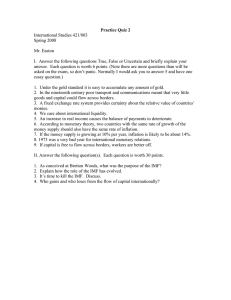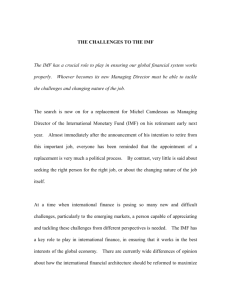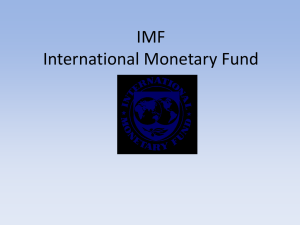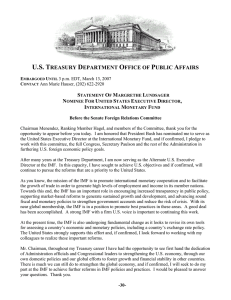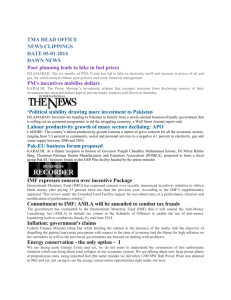Business Deficit forces IMF to rethink role
advertisement
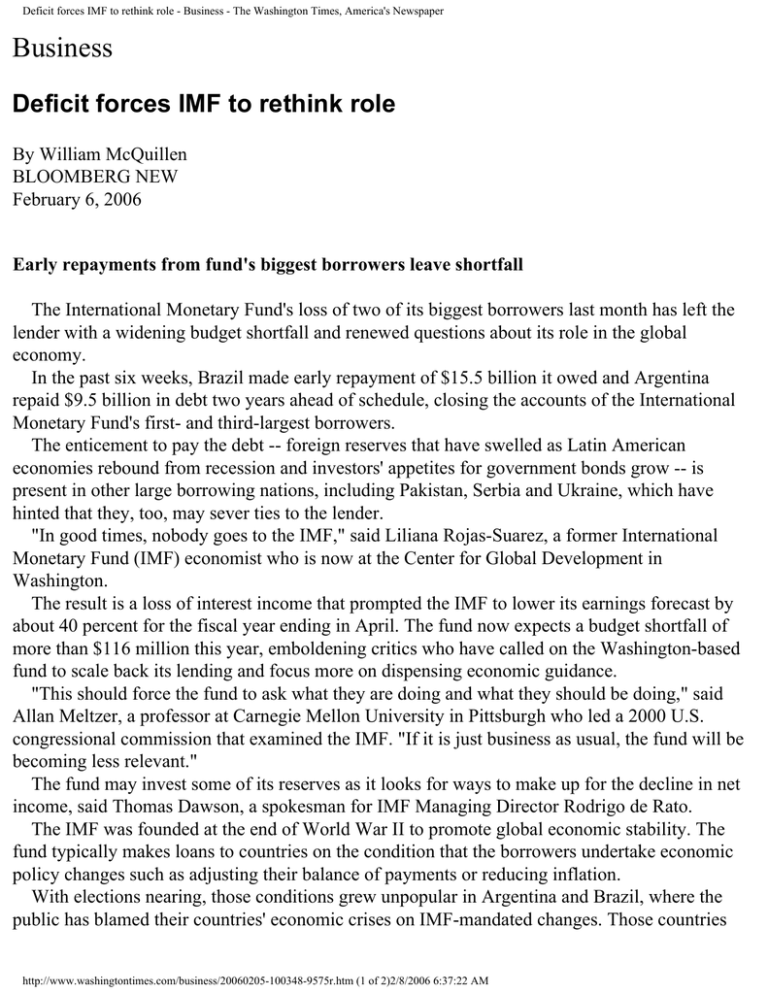
Deficit forces IMF to rethink role - Business - The Washington Times, America's Newspaper Business Deficit forces IMF to rethink role By William McQuillen BLOOMBERG NEW February 6, 2006 Early repayments from fund's biggest borrowers leave shortfall The International Monetary Fund's loss of two of its biggest borrowers last month has left the lender with a widening budget shortfall and renewed questions about its role in the global economy. In the past six weeks, Brazil made early repayment of $15.5 billion it owed and Argentina repaid $9.5 billion in debt two years ahead of schedule, closing the accounts of the International Monetary Fund's first- and third-largest borrowers. The enticement to pay the debt -- foreign reserves that have swelled as Latin American economies rebound from recession and investors' appetites for government bonds grow -- is present in other large borrowing nations, including Pakistan, Serbia and Ukraine, which have hinted that they, too, may sever ties to the lender. "In good times, nobody goes to the IMF," said Liliana Rojas-Suarez, a former International Monetary Fund (IMF) economist who is now at the Center for Global Development in Washington. The result is a loss of interest income that prompted the IMF to lower its earnings forecast by about 40 percent for the fiscal year ending in April. The fund now expects a budget shortfall of more than $116 million this year, emboldening critics who have called on the Washington-based fund to scale back its lending and focus more on dispensing economic guidance. "This should force the fund to ask what they are doing and what they should be doing," said Allan Meltzer, a professor at Carnegie Mellon University in Pittsburgh who led a 2000 U.S. congressional commission that examined the IMF. "If it is just business as usual, the fund will be becoming less relevant." The fund may invest some of its reserves as it looks for ways to make up for the decline in net income, said Thomas Dawson, a spokesman for IMF Managing Director Rodrigo de Rato. The IMF was founded at the end of World War II to promote global economic stability. The fund typically makes loans to countries on the condition that the borrowers undertake economic policy changes such as adjusting their balance of payments or reducing inflation. With elections nearing, those conditions grew unpopular in Argentina and Brazil, where the public has blamed their countries' economic crises on IMF-mandated changes. Those countries http://www.washingtontimes.com/business/20060205-100348-9575r.htm (1 of 2)2/8/2006 6:37:22 AM Deficit forces IMF to rethink role - Business - The Washington Times, America's Newspaper aren't alone. Pakistan, the IMF's third-largest debtor now that Argentina has walked away, is carrying $1.51 billion in debt and says it is seeking to cut its dependence on the fund; Ukraine, the fourth-largest debtor, said in 2004 it probably would decline any additional assistance; and Serbia, which owes the IMF about $874 million, said last month that it wouldn't borrow any more. Copyright © 1999 - 2006 News World Communications, Inc. http://www.washingtontimes.com/ business/20060205-100348-9575r.htm http://www.washingtontimes.com/business/20060205-100348-9575r.htm (2 of 2)2/8/2006 6:37:22 AM
